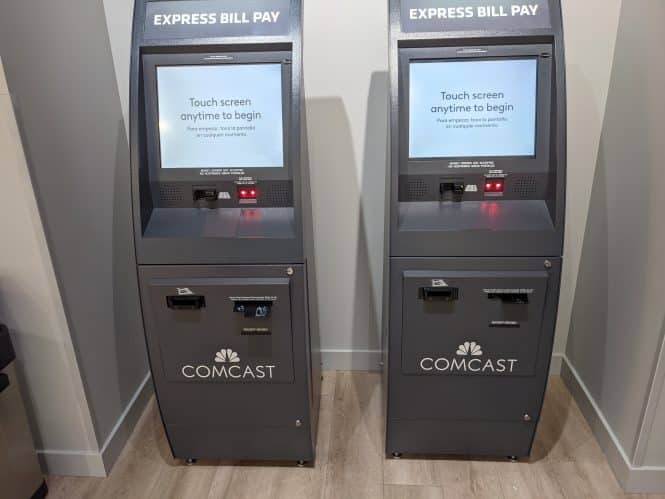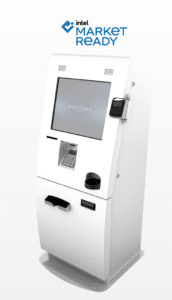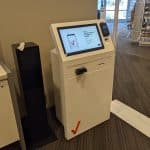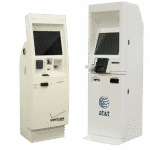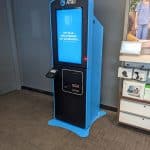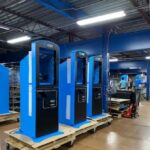Payment Kiosk Update
Editors Note: See Payment Kiosks as well
Kiosk payment devices include cash acceptor (bill validators), cash dispensing, credit card, EMV, coin acceptors and card encoder dispensers (Nidec does those), and cash recycling. Payment in the retail sector has morphed into mobile pay options, biometrics like Facial (see PopID) to SMS. Cash has declined in the retail sector, at least in the U.S. Some cultures (Poland for example) have a strong cash thread and you can see those at McDonalds where alongside the usual credit card payment kiosk, they also have standalone cash handling. State and local authorities managing child support is another good sector for cash.
Historically cash advocates have pointed to the unbanked and semi-banked population as one of their biggest audiences. With the advent of digital currencies though many of the “unbanked” are actually now at least partially banked with their mobile phone.
Obstacles to self-payment include the complication of gateways and processors. Which kernel is validated and for what. And in today’s world there is now Bitcoin as well as the nascent emerging mobile payments (take your pick on projected winner).
Payment kiosks for people in the kiosk industry tend to imply the acceptance of cash and often the dispensing of cash. Coin is still around (prison intake kiosks do that).
Historical example projects for Payment Kiosks in the US include:
- AT&T bill payment kiosks in the AT&T stores. Maybe 5000 of them and they still take check and cash from mobile phone subscribers
- Verizon — about the same as AT&T
- TMobile — yep…historically this was NCR account but with all the changes hard to say anymore
- DMVs — these are 15K units taking all forms of currency. ITI is primary software platform. Historically they have used FMA for many of their units
- Individual states like Maryland DMV and other have their own solutions
- Alimony kiosks in California are a big thing
- Ticketing and parking is a large payment segment, albeit mostly card-based payment
- Supermarkets use cash recyclers in thei hybrid POS checkouts
- One promoted application is the Glory recyclers in Mashgin. There are 3 installation in Colorado and probably a hundred in Poland.
- Bitcoin ATMs might be considered part of this but it has been a volatile market with legislative and legal “complications”
Payment Kiosk Resources
- Olea Kiosks, Inc. kiosks
- KioWare software
- Pyramid Computer kiosks
- Kiosk Group tablet kiosks
- Nanonation Software
- Vispero Kiosk Accessibility
- KIOSK kiosks
- LG Solutions signage & kiosks
- 22Miles digital signage software
- Panasonic Solutions
- Peerless-AV kiosks & digital signage
- Acquire Digital digital signage
- Intel Kiosk
- Dolphin Computer – Accessibility
- ImageHolders – tablet kiosks
- REDYREF – kiosks – standard & custom
- Star Micronics – POS, printers
- Elotouch – TouchscreensRetail & POS
- Full List
Bill Payment Kiosk info
-
- Bill Pay Kiosks case studies
More Posts
- Verizon bill pay kiosk front
- Verizon Kiosks
- AT&T bill pay kiosk
- REDYREF kiosks
- JACK kiosks
What Does Google Bard Say?
A payment kiosk is a self-service terminal that allows customers to make payments for goods and services. Payment kiosks are typically found in public places such as grocery stores, malls, and gas stations. They can also be found in businesses such as banks, parking garages, and government offices.
To use a payment kiosk, customers typically need to:
- Enter their account number or scan a barcode on their bill.
- Select the bill they wish to pay.
- Choose their payment method.
- Enter the amount they wish to pay.
- Confirm the payment.
Payment kiosk offers a number of benefits for customers, including:
- Convenience: Payment kiosks can be used 24/7, so customers don’t have to wait in line to pay their bills or make other payments.
- Flexibility: Payment kiosks typically accept a variety of payment methods, including cash, credit cards, and debit cards.
- Security: Payment kiosks are equipped with security features to protect customer data.
- Cost-effectiveness: Payment kiosks can save businesses money on labor costs.
Here are some examples of the different types of payment kiosk that are available:
- Bill payment kiosks: These kiosks allow customers to pay their bills for utilities, rent, and other services.
- Parking payment kiosks: These kiosks allow customers to pay for parking fees.
- Ticket sales kiosks: These kiosks allow customers to purchase tickets for events, such as concerts and sporting events.
- Money transfer kiosks: These kiosks allow customers to send and receive money domestically and internationally.
- Reloadable card kiosks: These kiosks allow customers to reload their prepaid debit cards.

